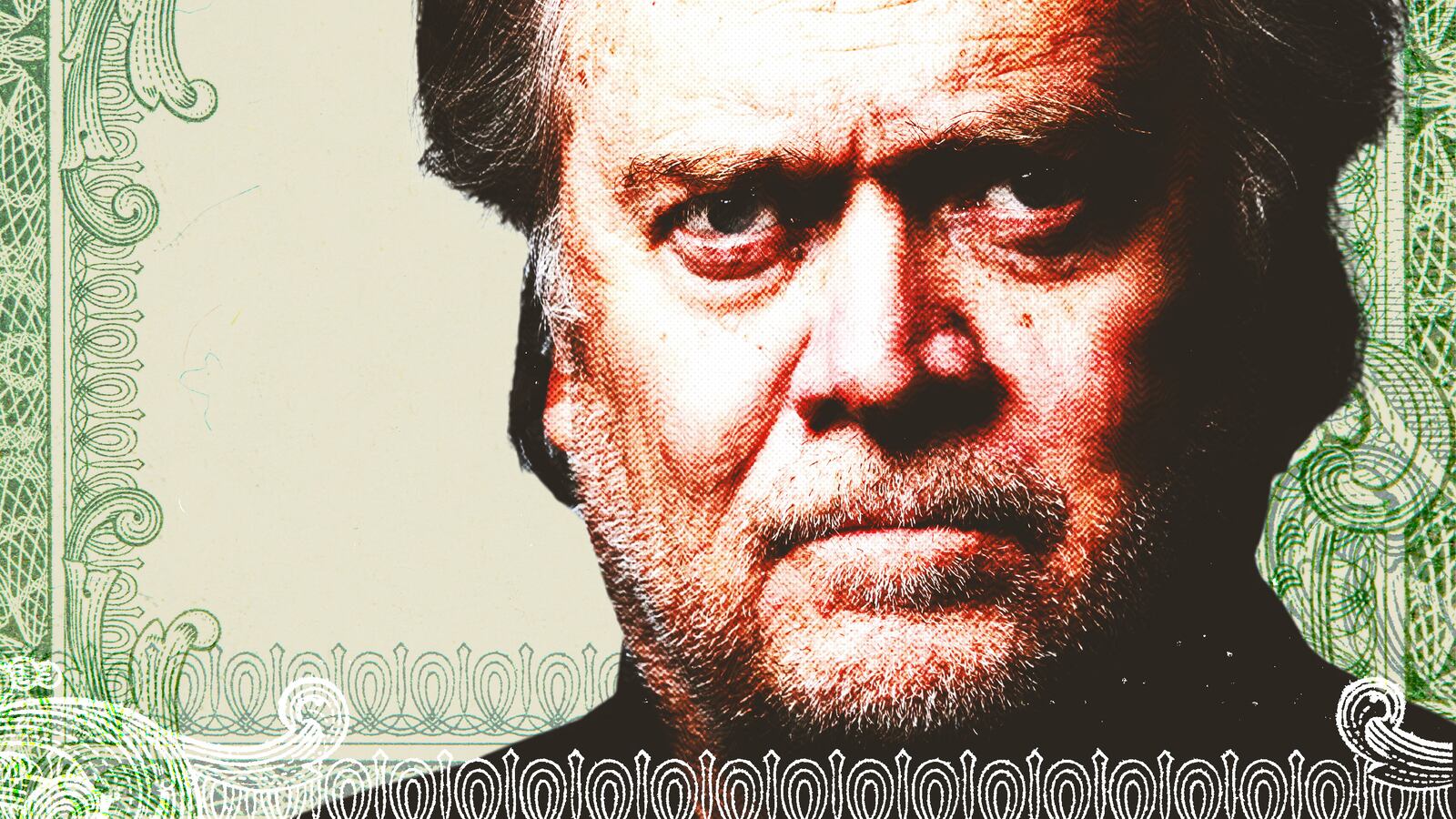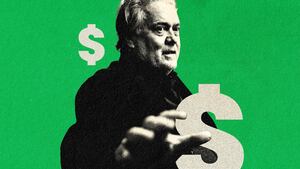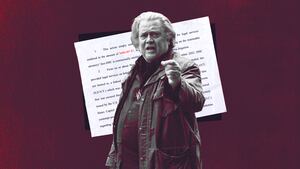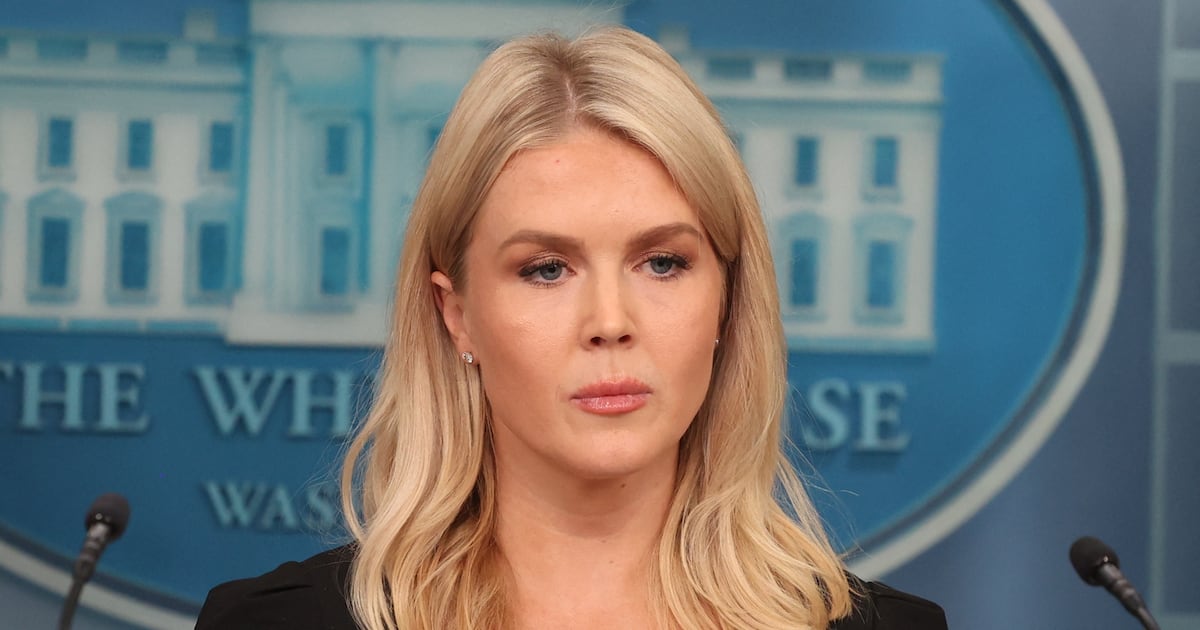For two years, Steve Bannon has refused to pay the half-million dollars he owes his former lawyer. Now, his refusal to settle his debts has exposed him and his current attorney to potential sanctions.
“Bannon, with the aid of his counsel, has, for months, done nothing but intentionally stall and delay plaintiff’s enforcement of its valid money judgment,” the law firm that previously represented him wrote to a New York state judge last month, employing an underline to show their heightened frustration.
Bannon, who was once Donald Trump’s White House chief strategist and played an active role in the former president’s Jan. 6 coup attempt, is already trapped in a precarious position. He’s a convict trying to avoid serving his four-month prison sentence for ignoring a congressional subpoena that sought to question him over his role in the MAGA insurrection. And the Manhattan District Attorney is putting him on trial in May for duping nativist donors to “We Build The Wall” who wanted to support a privately built U.S.-Mexico border barrier.
But now he’s making it even worse on himself.
It’s been seven months since a New York state judge ordered the conspiracy-spewing right-wing political agitator to pay the $484,197 he owed the defense lawyer he stiffed, Bob Costello.
But since then, according to court filings, Bannon has been dodging the ordered judgment and ignoring follow-up subpoenas. That has put the aggrieved New York City law firm of Davidoff Hutcher and Citron in the awkward position of asking the judge to intervene yet again, citing what they called “a last ditch effort concocted by Bannon to game this court.”
In its attempt to get a readout of Bannon’s personal finances and his ability to pay the bill, the law firm tried to question him under oath and sent subpoenas to learn more about his businesses and what’s in his personal bank accounts. Emails show that Bannon’s new lawyer, Harlan Protass, initially agreed in November to schedule a deposition and turn over materials—provided that they first sign a “simple and straightforward” confidentiality agreement.
But as the months went by, nothing happened.
Then, in January, Bannon suddenly put up resistance and claimed he couldn’t possibly answer questions or turn over bank records. Doing so would potentially reveal evidence of fraud that could ruin his attempt to overturn his federal conviction or even bolster the Manhattan DA’s case.
“DHC’s taking of post-judgment discovery from Mr. Bannon poses a significant risk of compromising Mr. Bannon’s Fifth Amendment right against self-incrimination,” Protass wrote in court filings.
It was an unwelcome surprise. On Feb. 6, Costello’s law firm told the judge that Protass has been toying with them and engaging in “a feeble attempt at stalling.” Joseph N. Polito, a senior counsel at Costello’s firm, wrote that the excuse “is beyond any and all logic.”
Polito then took the relatively rare and aggressive approach of asking that New York Supreme Court Justice Arlene P. Bluth hit the right-wing influencer and his lawyer each with $10,000 sanctions—the highest allowable fine “for engaging in intentional dilatory litigation tactics.”
“Bannon’s intentional bad faith conduct has left plaintiff with no other choice but to seek civil contempt and sanctions. Without this relief, Bannon will be further emboldened to continue his dilatory tactics that have, and continue to, severely prejudice plaintiff in its efforts to satisfy the substantial money judgment that remains outstanding,” Polito wrote.
But Polito went even further, asking the judge to also tack on the cost he incurred “for having to address Bannon’s frivolity,” an eloquent insult used to describe the hours he’s wasted chasing down the conservative media figure.
Protass did not respond to a request for comment, but he is expected to file a formal reply in court records later this week. Polito did not reply to an email asking about the case.








